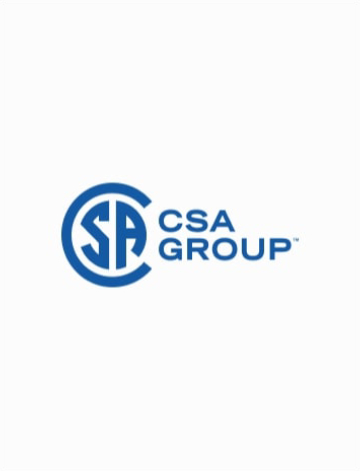Preface
This is the second edition of CSA Z259.2.5, Fall arresters and vertical lifelines. It supersedes the previous edition published in 2012. It is part of a series of Standards on components of fall-protection systems and replaces that part of CAN/CSA-Z259.2.1-98 (R2011), Fall arresters, vertical lifelines and rails, covering vertical lifelines.
This Standard is considered suitable for use for conformity assessment within the stated scope of the Standard.
Changes to this edition include
a) the removal of the slope test;
b) modifications to the dynamic performance test;
c) modifications to the test equipment requirements for dynamic strength;
d) changes to the informational requirements;
e) the definitions have been updated;
f) the references have been updated; and
g) connecting means (except connectors) used for fall arresters are permitted to be integral only.
CSA Group gratefully acknowledges the financial and in-kind support from the Canadian government departments responsible for occupational health and safety for the development of this edition.
This Standard was prepared by the Subcommittee on Fall Arresters and Vertical Life Lines, under the jurisdiction of the Technical Committee on Fall Protection and the Strategic Steering Committee on Occupational Health and Safety, and has been formally approved by the Technical Committee.
Scope
1.1
This Standard specifies design, testing, and marking requirements for manufactured fall arresters for single users and for manufactured vertical lifelines.
1.2
The equipment specified in this Standard is intended for use where there is a danger of falling from heights. In the event of a fall, the equipment will lock to arrest the fall.
1.3
This Standard does not cover
a) the design, testing, installation, or supply of anchorage connectors;
b) horizontal lifeline systems;
c) rope adjusting implements for use in travel restraint or work positioning applications; and
d) any system incorporating a knot, hitch, or rope sliding hitch.
1.4
In this Standard, shall is used to express a requirement, i.e., a provision that the user is obliged to satisfy in order to comply with the standard; should is used to express a recommendation or that which is advised but not required; and may is used to express an option or that which is permissible within the limits of the Standard.
Notes accompanying clauses do not include requirements or alternative requirements; the purpose of a note accompanying a clause is to separate from the text explanatory or informative material.
Notes to tables and figures are considered part of the table or figure and may be written as requirements.
Annexes are designated normative (mandatory) or informative (non-mandatory) to define their application.
1.5
The values given in SI units are the units of record for the purposes of this Standard. The values given in parentheses are for information and comparison only.


